Room 102, Building 13, Area A, Wanyang Zhongchuang Park, Ganyao Town, Jiashan County, Zhejiang China.

Evaluating the strength and load-bearing capacity of Auto Parts Screws is an important part of ensuring the safety and reliability of auto parts. Screws are responsible for fixing and connecting key components in the car, so their load-bearing capacity and strength directly affect the overall performance and safety of the car. The following are several important aspects of evaluating the strength and load-bearing capacity of auto parts screws:
The strength and load-bearing capacity of screws first depend on the material used. Common auto parts screw materials include:
Stainless steel: has excellent corrosion resistance and is suitable for parts that require high corrosion resistance.
Carbon steel: has high strength but poor corrosion resistance and is usually used for parts with large loads.
Alloy steel: provides a good balance between strength and toughness and is widely used for high-strength screws.
Aluminum alloy: lightweight, suitable for parts with strict weight requirements, but relatively low strength.
When selecting screw materials, it is necessary to select the appropriate material according to the use environment and load requirements, because the differences in tensile strength, compressive strength and fatigue resistance of different materials will directly affect the load-bearing capacity of the screws.
The strength of screws is usually evaluated by several key mechanical parameters:
Tensile Strength: The maximum stress that a screw can withstand under tension. When the tensile force of a screw exceeds its tensile strength, the screw will break.
Yield Strength: The maximum stress that a screw can withstand before permanent deformation. After exceeding the yield strength, the screw will undergo plastic deformation.
Shear Strength: The maximum stress that a screw can withstand when subjected to shear force. Shear force often occurs at the connection of screws, especially under vehicle vibration or torque.
Torsional Strength: The maximum load-bearing capacity of a screw under torsion, usually used to evaluate whether the screw can resist the torque during installation.
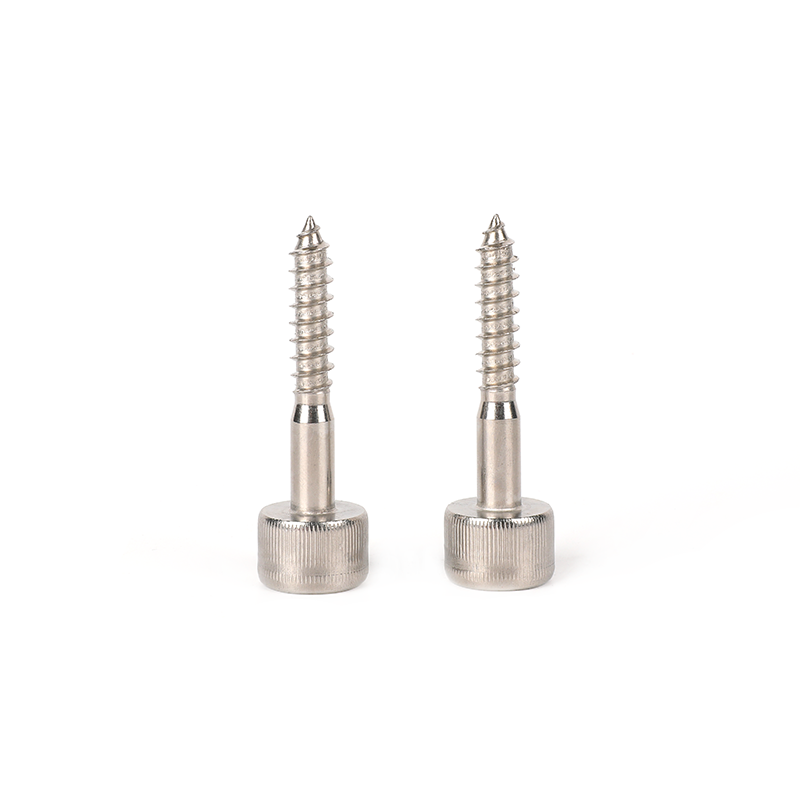
The thread is a key part of the screw, which has an important impact on the load-bearing capacity of the screw. The type, shape, number and size of the thread will affect the strength and load distribution of the screw:
Thread type: Common thread types include triangular thread, square thread, etc. Triangular thread is the most common and is suitable for occasions with large loads.
Thread size: Larger diameter and thicker threads usually provide higher load-bearing capacity.
Thread surface quality: Smooth threads can reduce friction coefficient, reduce damage to screws during tightening, and improve load-bearing capacity.
Screws are subject to a variety of load types in automobiles, including static loads, dynamic loads, impact loads, and vibration loads. Different types of loads have different performance requirements for screws:
Static loads: Screws are subjected to continuous constant loads. The required tensile strength and shear strength can usually be determined through design calculations.
Dynamic loads: Screws are subjected to periodic load fluctuations, which can easily lead to fatigue failure. Screws must have good fatigue strength to cope with such loads.
Impact loads: Rapidly acting forces may cause instantaneous failure of screws. Screws need to have high impact strength and toughness.
Vibration loads: During the driving of the car, screws are subject to constantly changing vibration loads. The design of the screws needs to prevent loosening and provide sufficient vibration resistance.
To accurately evaluate the load-bearing capacity of screws, it is usually necessary to test and calculate through the following methods:
Mechanical simulation: Finite element analysis (FEA) is performed using computer-aided engineering (CAE) software to simulate the stress distribution of screws under different loads. This can help designers evaluate the load-bearing capacity of screws in actual applications.
Tensile test: The screw is stretched by a tensile testing machine to test its tensile strength and yield strength.
Shear test: The shear force test is performed by special equipment to determine the shear strength of the screw.
Fatigue test: The fatigue resistance of the screw is tested under cyclic load. Common test methods include rotational bending fatigue test and tension-compression cyclic fatigue test.
Torque test: The torque strength of the screw is evaluated by torque testing equipment to ensure its load-bearing capacity during tightening.
In addition to material, design and load type, there are other factors that affect the load-bearing capacity of the screw:
Surface treatment: The surface treatment of the screw (such as galvanizing, electroplating, heat treatment, etc.) can improve its corrosion resistance and increase the surface hardness, thereby improving the overall performance and load-bearing capacity of the screw.
Installation method: The installation method of the screw (such as whether lubricant is used and whether it is tightened correctly) also has an important impact on the load-bearing capacity of the screw. Overtightening or over-loosening may cause the performance of the screw to deteriorate.
Environmental factors: Environmental factors such as temperature, humidity, and chemical corrosion can also affect the strength of the screw. In a high temperature environment, the strength of the material may be reduced, and in a corrosive environment, the surface of the screw may be corroded, affecting its load-bearing capacity.
Evaluating the strength and load-bearing capacity of automotive component screws is a complex process involving material selection, thread design, load type, test methods, and other aspects. By comprehensively analyzing the screw's performance parameters, load conditions, and actual application environment, designers can ensure that the screws play the best connection role in the car and ensure the safety and long-term stability of the car. At the same time, regular quality control and performance testing to ensure the reliability of screws is an important measure to improve the quality of automotive parts.

Fix anchorbolts include bolts, washers, nuts and 4PCS cylindrical shields. By tightening the bolts, the shields tubes expand and the components can be...
See Details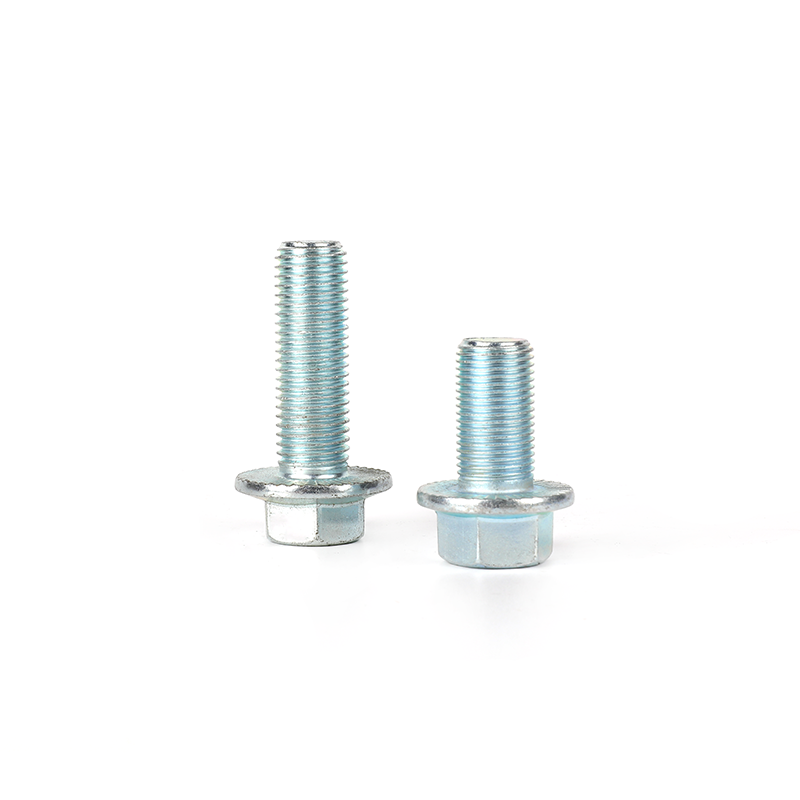
Flange bolts are specially used to tightly connect pipes and components with flanges. We produce flange bolts are solid t and durablethat, compling wi...
See Details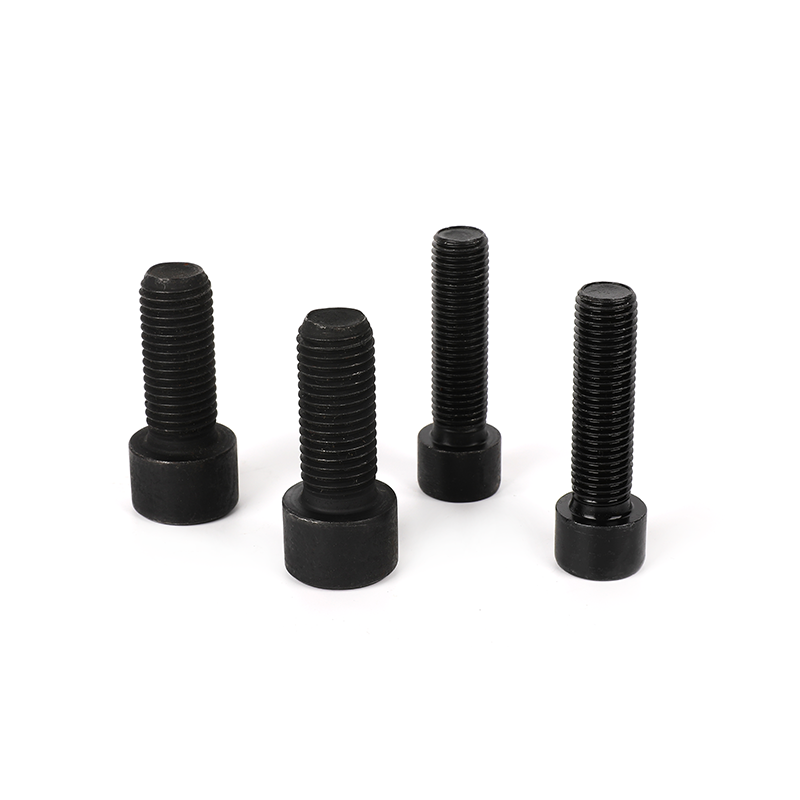
The Grade 8.8 black oxide full-thread hexagon socket bolts have an internal hex design and needs to be used with a wrench with a hex head. Its full th...
See Details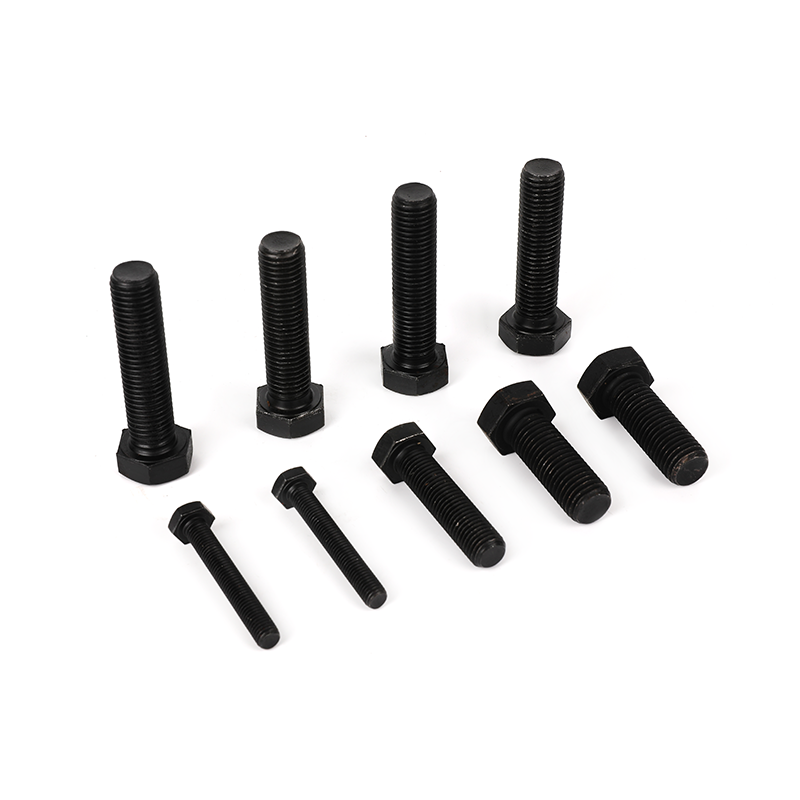
Grade 8.8 black oxide full-thread hexagon bolts is a very common fastener and requires a wrench or hex wrench to tighten it. Our hex head bolt meet th...
See Details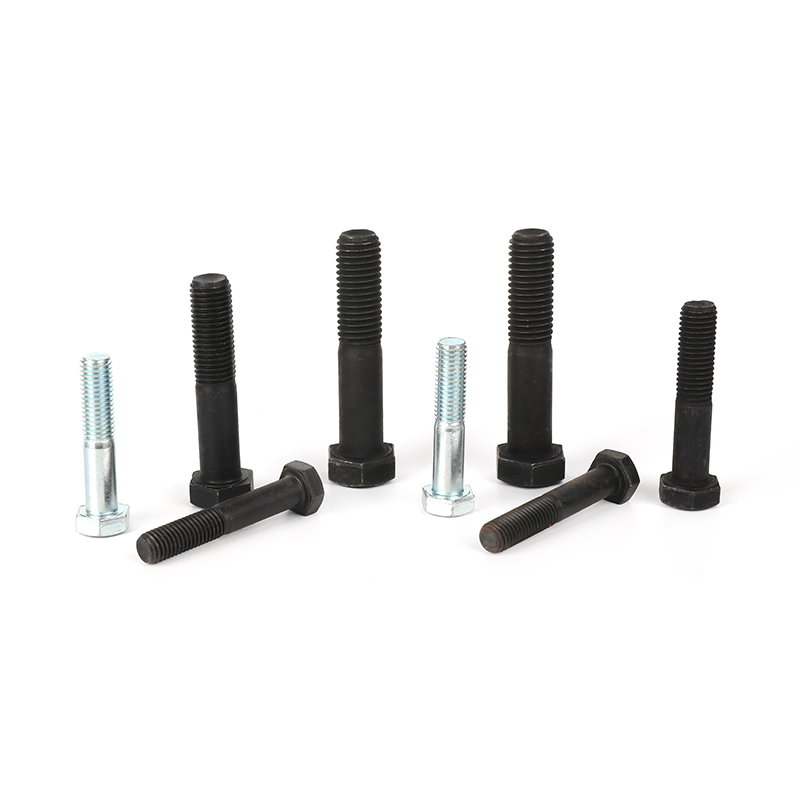
This product is made of high-quality carbon steel and undergoes a rigorous heat treatment process. It has high strength, good elasticity and toughness...
See Details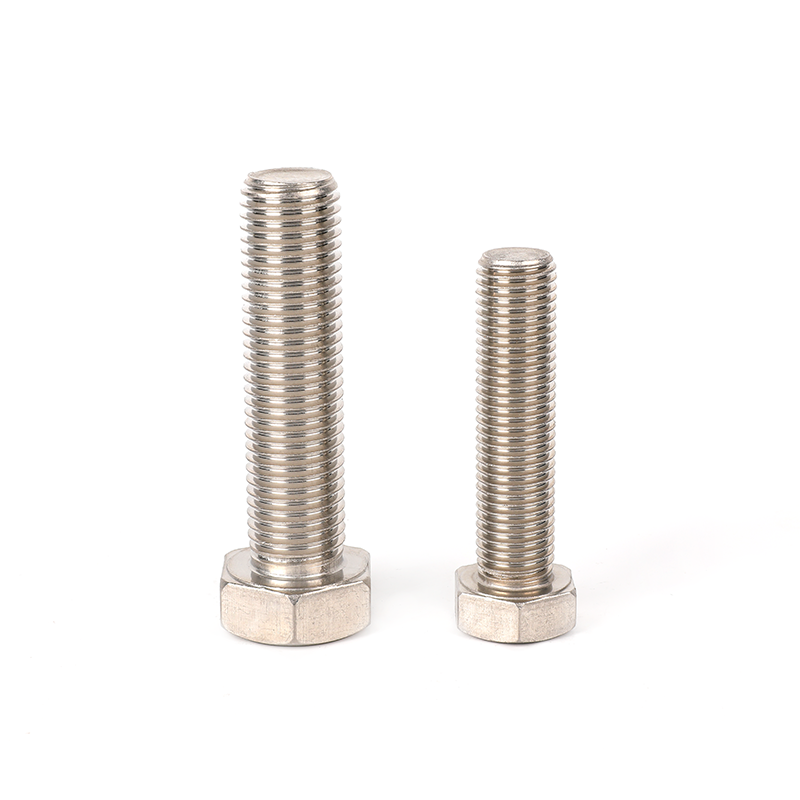
This 304 stainless steel plain full-thread hexagon bolt is a kind of fasteners made of high-quality stainless steel material and has corrosion resista...
See Details
This plain round flat head weld shoulder bolt is a fastener suitable for a variety of welding applications. Its flat head and round head design makes ...
See Details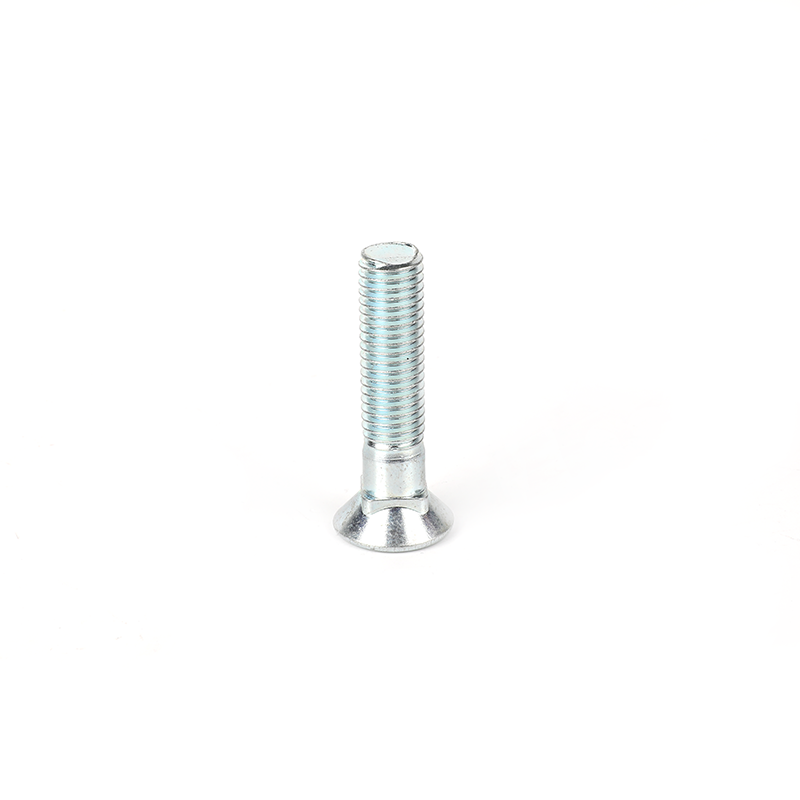
This Grade 12.9 zinc plated countersunk head square neck plow bolt has the advantages of high precision, high operability, high strength, and high ten...
See Details